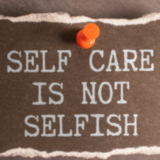Understanding Reactive Arthritis
Things to remember | Symptoms | Cause | Diagnosis | Treatment | Self-management | Where to get help | How we can help | More to explore | Download PDF
Things to remember
- Reactive arthritis is a type of arthritis caused by certain types of bacterial infection
- Symptoms include joint pain and swelling and eye inflammation
- Most people will find their condition disappears completely within 6-12 months.
Reactive arthritis, formerly called Reiter’s syndrome, is a type of arthritis that occurs as a ‘reaction’ to a bacterial infection in another part of your body., particularly a bowel or genital tract infection.
Normally when you have an infection, your immune system steps in to fight the foreign body (e.g. bacteria, virus). However in reactive arthritis, this immune system activity continues after the infection has been cleared. This leads to painful swelling of your joints, although your joints themselves are not infected.
The joints of your knees, feet and ankles are most commonly affected by reactive arthritis.
Reactive arthritis can occur at any age, however it tends to affect people (mostly men) aged between 20 and 50 years.
Most people with reactive arthritis will find that their condition disappears completely within 6-12 months. However for some people, symptoms may linger for a longer period of time or may come back.
Reactive arthritis isn’t contagious, however the bacteria that has caused the condition can be passed on to others, through sexual activity and contaminated food.
Symptoms
The symptoms of reactive arthritis develop some weeks after the infection, and may include:
- pain, swelling or stiffness in a joint (arthritis)
- pain in the lower back and buttocks
- pain and inflammation of tendons, such as the Achilles tendon at the back of your heel
- pain and redness in your eyes – some people may develop conjunctivitis (inflammation of the outer layer of the eye) or uveitis (inflammation of the middle layer of the eye)
- rash on the palms of your hands or soles of your feet
- mouth ulcers
- diarrhoea, which can occur before the arthritis.
Cause
Bacterial infections that are known to cause reactive arthritis include:
- the food poisoning bacterium Salmonella
- bacteria that cause gastrointestinal illness such as Shigella, Yersinia or Campylobacter
- the sexually transmitted infection chlamydia (caused by the bacterium Chlamydia trachomatis).
Most people who catch one of these bacterial infections don’t develop reactive arthritis. We don’t know why some people develop arthritis and others don’t.
If you have a genetic marker known as HLA-B27 you are more likely to develop reactive arthritis. Having the HLA-B27 gene could also make you more likely to have further episodes in the future.
However many other people have this marker and never develop reactive arthritis. So the reason some develop reactive arthritis and others don’t is still a mystery.
Diagnosis
There’s no specific test for diagnosing reactive arthritis, so your doctor will use a number of different exams and tests including:
- discussing your medical history – e.g. your current symptoms, as well as any recent illness, infections or other health problems
- a physical examination of your joints, spine, eyes and skin to check for inflammation and other changes (e.g. changes to joint movement, rashes)
- urine or stool samples may be taken to check for the presence of infection
- blood tests – to look for signs of inflammation
- swabs of your throat, penis or vagina to check for signs of infection or inflammation
- tests to rule out other forms of arthritis are negative
- x-rays – may be used to look for signs of arthritis
- arthrocentesis – a sample of fluid is taken from your joint and tested in a laboratory (this is done to rule out conditions such as gout that may cause similar symptoms).
Treatment
Medical care aims to manage the symptoms until you get better, and may include:
- antibiotics – to destroy the bacteria that caused the initial infection. However antibiotics don’t treat the symptoms of reactive arthritis. If you developed reactive arthritis as a result of infection with the bacterium Chlamydia trachomatis, your sexual partner or partners must also be treated with antibiotics.
- eye drops /ointment to treat conjunctivitis or steroid eye drops to treat iritis.
- non-steroidal anti-inflammatory drugs (NSAIDs) – may be used for temporary relief of joint inflammation and pain.
- corticosteroids – if you have severe pain and inflammation in your joints, your doctor may prescribe a stronger anti-inflammatory medicine called a corticosteroid. They can be taken as tablets or given by injection directly into a joint, muscle or other soft tissue.
- disease-modifying anti-rheumatic drugs (DMARDs) – may be given if your reactive arthritis persists for a prolonged period. They work on controlling your overactive immune system. They help relieve pain and inflammation, and can also reduce or prevent joint damage.
- physiotherapy can help to keep your affected joint/s mobile and strengthen the surrounding ligaments, tendons and muscles.
Uveitis requires specialist treatment. If you develop uveitis, your doctor may refer you to an ophthalmologist for treatment. Your doctor may also refer you to a rheumatologist if needed.
Self-management
As well as following the treatment plan your healthcare team has given you, there are many things you can do to manage your reactive arthritis:
Become more informed about your condition. Knowing as much as possible about your condition means that you can make informed decisions about your healthcare and play an active role in the management of your condition.
Work with your healthcare team – keep them up-to-date with how things are going, including changes in symptoms, any issues with your medications, if you’re having difficulties staying active or at work, if you’re feeling anxious or worried.
Stay physically active – regular physical activity has lots of health benefits. It can also help you manage the symptoms of your condition. When you start exercising regularly you should notice an improvement in your pain levels, the quality of your sleep, increase in energy levels and improvements in your overall strength and fitness.
Eat well – eating a balanced diet can help provide you with better energy levels, help to maintain your weight, and give you a greater sense of wellbeing.
Learn ways to manage pain – this may include heat or cold packs to ease muscular aches and joint pain, relaxation techniques, gentle exercise and medications for short term pain relief.
Use relaxation strategies – there’s a wide range of relaxation techniques you can try, from listening to your favourite music, deep breathing, going for a walk, progressive muscle relaxation and more. Try out several different strategies to find things that work best for you.
Stay at work – it’s good for your health and wellbeing. Talk to your doctor or allied healthcare professionals about ways to help you to get back to or stay at work.
Where to get help
- Your doctor
- Rheumatologist
- Musculoskeletal Health Australia.
Back Pain | Arthritis | Musculoskeletal Conditions (B.A.M) Helpline 1800 263 265
How we can help
Call our Helpline and speak to our friendly team: phone 1800 263 265 or email helpline@muscha.org
We can help you find out more about:
- reactive arthritis and other musculoskeletal conditions
- ways to live well with these conditions
- managing your pain
- read our A-Z guide to managing pain
- watch our excellent videos on pain, your brain and how you can retrain your pain system.
- Pain, the brain and your amazing protectometer – Lorimer Moseley
- Treating pain using the brain – David Butler
- upcoming webinars, seminars and other events.
More to explore
- Better Health Channel betterhealth.vic.gov.au
- Versus Arthritis versusarthritis.org
Download this information sheet (PDF).
The whole or part of this material is copyright to the State of Victoria and the Better Health Channel. Reproduced with permission of the Victorian Minister for Health. Users are permitted to print copies for research, study or educational purposes.
This information has been produced in consultation with and approved by: Musculoskeletal Health Australia.










